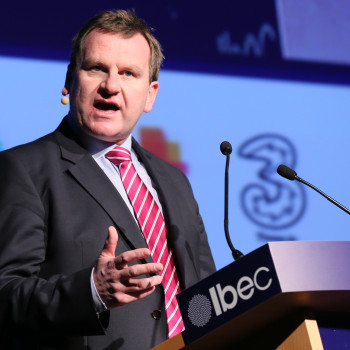Majority of companies to increase pay in 2015, Ibec survey finds

Ibec finds 57% of companies plan to increase basic pay in 2015 but ISME says this is not realistic for small businesses
5 January 2015
Ibec, the group that represents Irish business, has published the results of a comprehensive new pay survey, which found that 57% of companies plan to increase basic pay in 2015. The median pay increase is set to be 2%, which is the same as 2014. In 2014, 49% of companies increased basic pay, 50% kept pay the same and 1% reduced basic pay.
The survey which questioned 462 businesses, showed larger companies are more likely to be increasing basic pay in 2015. Three out of five companies with more than 50 employees expect to increase basic pay in 2015, compared with just over half (51%) of respondents with fewer than 50 employees.
Ibec CEO Danny McCoy said: “Pay will increase for most in 2015, but not all. The economy is recovering strongly, but we have a long way to go. The economy in money terms is still about 6% below its pre-crisis peak and overall price levels are below where they were in summer 2008. This needs to be reflected in pay expectations. Many companies remain in survival mode and simply cannot afford pay rises.”
Meanwhile, ISME, the Irish Small and Medium Enterprises Association, has released figures on wage rate expectations for SMEs in the next 12 months. The ISME survey results show that, in the majority of cases (71%), SMEs will not be changing wage rates in the coming 12 months. In a press statement, the association cautioned against unrealistic pay expectations being touted by some politicians and as a result of a big business/semi-state survey.
Mark Fielding, ISME CEO, said: “The situation for SMEs remains precarious. Owner-managers in particular have borne the brunt of the pain by taking huge pay cuts, and in some cases no salary at all, in an effort to keep their businesses afloat.”
Commenting on the IBEC survey results, Fielding advised caution. “Big business, semi-states and multinationals form an important part of the economy but do not, in any way, reflect the reality on the ground for the 200,000 SMEs, representing over 98% of all businesses in the country. We know that there is a dual economy and that big business is doing better. The headline figures have created an unrealistic pay expectation and cannot be used across the economy as the more recent ISME survey of almost 1,000 SMEs proves.”
Ibec’s Danny McCoy also said that further income tax cuts are needed over the coming years. On a national incomes policy, he commented: “There is no desire for national pay agreements in the foreseeable future. Enterprise level bargaining will remain the norm over the coming years. However, there is merit in establishing open channels of dialogue between government, Ibec and the trade union movement to manage expectations and safeguard competitiveness.”



 Print
Print




Fans 0
Followers